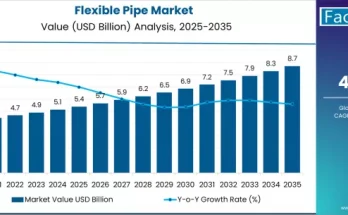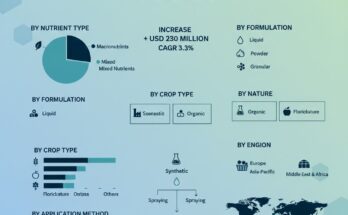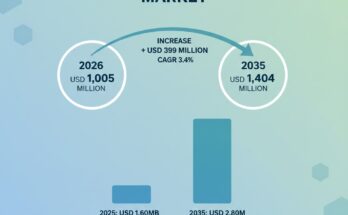Introduction
The market for recycled plastics is likely to change rapidly due to various factors. The major companies within the market are vowing to use fewer virgin plastics in favor of more available recycled plastics. This has already been considered a means of cutting down packaging costs. In addition, certain restrictions such as bans on plastic waste and laws enforcing the use of recycled materials are anticipated to increase the need and compel market champions to find solutions and improve available alternatives.
Furthermore, these civil responsibilities are also being driven by the increasing purchasing power of consumers towards green products. Organizations across the globe have become very focused on particular plastic-looking designs as most of their competitors go for eco-friendly innovations. There is this common phenomenon among business players and it is largely because of the costs associated with efficient ways of recycling plastics such as chemical recycling and AI-driven recycling systems.
Besides, it is essential to note that the concept of a circular economy has been in high demand and this is being supported greatly by most of the organizations and nations. This has led to a scenario where, businesses have started viewing waste as a resource, which eventually increases the supply of recycled plastics. In addition, the increased awareness of the dangers posed by plastic waste and its harmful effects on the environment has also changed consumers’ preferences. In addition, consumers are also seeking a wider range of products with various forms of packaging, thus compelling manufacturers to use more recycled plastic in their packaging. The other changes include the implementation of stringent policies in some countries for instance the prohibition of single-use plastics and regulation on minimum recycled content in products. These policies, in turn, are driving the incorporation of recycled materials into the company, which expands the market development.
Also, recycled plastics have become a more cost-competitive option due to crude oil prices fluctuating. This particularly appeals to industries looking to reduce production costs while meeting environmental goals.
Our projections for global recycled plastic market to reach US$ 85.18 billion in 2024 and thereafter increase at 7.8% CAGR to value at US$ 180.51 billion by 2034.
Key Obstacles and Restraints Faced by the Recycled Plastic Industry
One of the most significant challenges is the high cost of recycling technologies. While chemical recycling offers immense potential, it remains expensive and energy-intensive compared to traditional mechanical recycling. Moreover, the inconsistent quality of recycled plastic, particularly from post-consumer waste, is a barrier for industries that require high-performance materials. The contamination of plastic waste streams, caused by improper sorting and mixing of different types of plastics, often results in lower-grade recycled materials, limiting their applications.
Another key restraint is the lack of recycling infrastructure, particularly in developing regions. While countries like the U.S. and parts of Europe have made strides in establishing sophisticated recycling systems, much of the world still lacks the infrastructure necessary to efficiently collect, sort, and process plastic waste. This leads to significant supply shortages of high-quality recycled materials, which in turn causes price volatility in the market.

Despite these challenges, the recycled plastic market is expected to grow rapidly, with several growth opportunities on the horizon. Technological advancements are paving the way for more efficient recycling processes, particularly in the realm of AI-powered sorting systems and chemical recycling. These technologies can help improve the quality of recycled plastics and increase the types of plastics that can be recycled. Additionally, government incentives and investment in recycling infrastructure, particularly in emerging economies, are creating a fertile ground for market expansion. Partnerships between private companies and governments are also leading to innovative solutions, such as large-scale waste collection initiatives, which are helping to close the gap in recycling capacity.
Also, recycled plastics have become a more cost-competitive option due to price fluctuation with crude oil prices. This is particularly appealing for industries looking to reduce production costs while meeting environmental goals.
As the fluctuation of virgin plastic prices closely follows the crude oil prices, recycled plastics are increasingly becoming a viable alternative. This is especially attractive for the sectors that are in a quest to reduce the costs of production while attaining their environmental objectives.
Competitive Landscape in the Recycled Plastic Manufacturing
The increased demand for recycled plastics is because of the need for diverse industries to eliminate their carbon emissions. Hence, more players are entering the industry including old plastic suppliers and new recyclers who specialize in the same market. A major competitive edge should be competition in advanced technologies such as chemical recycling and better sorting systems, which allow the companies to manufacture high-grade quality from waste plastics in little time. As the market is highly competitive, key players in the market are adopting these recent technologies to gain a competitive edge.
Our research projects a deep analysis of the growth of the Recycled Plastic Industry. It studies the key players across the globe, focusing on some main as Clean Harbors, Inc.; Shell International B.V.; Covestro AG; Waste Connections; WM Intellectual Property Holdings, LLC.; Alpek; Plastipak Holdings, Inc.; Veolia; MBA Polymers Inc.; Green Line Polymers; CarbonLite Industries LLC; ReVital Polymers; Dow Chemical Company; INEOS Olefins & Polymers.
Another challenge is the competition exhibited in prices between recycled plastics and fresh virgin ones. Firms able to cut average production costs because of higher efficiency or larger plant scale are favored. Most especially when the prices for crude oil which largely influence the price of fresh plastics fluctuate. Moreover, as consumers have placed a lot of emphasis on environmental sustainability, many companies are trying to sell their products that contain recycled plastics, thereby raising the stakes for other competitors. In the context of such a market, the race for developing new products and providing green options is very high amongst the players.
Future Scope of the Recycled Plastic Industry
The recycled plastic market is experiencing increasing demand due to environmental drivers, corporate responsibility, and governmental policy but this growth is however not without challenges. Also, high prices, variations in quality, and weak logistics are some of the main challenges that must be overcome. Nonetheless, due to the advancement of technology and dumping efforts in the improvement of recycling facilities, faster growth trends will be observed in this market. In addition, the capacity of a firm to build clean supplies of plastic waste for consumption is vital because it creates room for competition. There are large opportunities that await the growth of the recycled plastic market industry because it is essential in the sustainable development of a circular economy and lessening the usage of new plastic.



